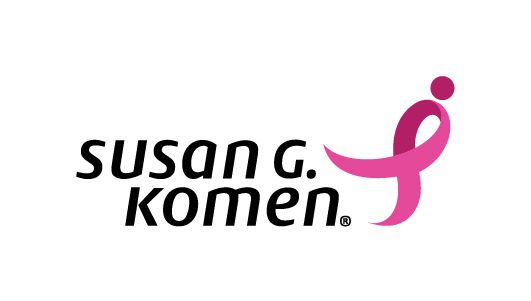
Caregivers: Finding the Support and Resources You Need

In order to best care for someone else, you need to take care of yourself. If you are caring for a loved one undergoing breast cancer treatment, there is support you can turn to. In this article, you’ll find some helpful tips and resources in order to be better-equipped as a caregiver.
For many, caregiving can be a very fulfilling and rewarding experience; a role that can bring on a sense of accomplishment and pride. However, it can also be scary and overwhelming to have this responsibility that you were probably never trained or prepared to do.
Taking care of a loved one with breast cancer takes on many forms. There is not one defined role. The kind of support will be different for each person. Caregivers may be taking care of medical tasks, practical needs and day-to-day tasks, while offering physical, emotional, spiritual or financial support. It is important to point out that anyone who takes care of a patient can be considered a caregiver, including family, friends, neighbors; it doesn’t have to be just family.
In order to best care for someone else, you need to take care of yourself. If you are caring for a loved one undergoing breast cancer treatment, there is support you can turn to. Below you’ll find some helpful tips and resources in order to be better-equipped as a caregiver.
Stay Organized
Getting organized and staying organized is a task in itself. Whenever possible, ask for help and accept help that is offered. This isn’t always easy to do. There may be family and friends around you that want to help, but don’t know how. With the help of websites such as
Susan G. Komen offers the
Organize and file all paperwork in a way that makes sense to you. The paperwork can be related to health forms, insurance forms, medical records, and notebooks or journals. It may help to keep an updated calendar.
Connecting with Your Loved One Undergoing Treatment
One of the biggest gifts you can offer someone is to be present, listen without judgment and allow your loved one to openly share their feelings. Being there for them could be as simple as sitting with your loved one. Your loved one may want to talk about the diagnosis, or they may want to make conversation that doesn’t involve treatment.
Be supportive and respectful of their feelings and decisions. It is hard watching a loved one cope with a cancer diagnosis and it is okay to admit that you don’t know what to say or do. By starting this conversation, you can open doors to better communication and understanding. Has there ever been a time you helped each other deal with difficult situations in the past? Identify what you have done in the past and do what works best for the both of you.
Educate yourself on cancer and treatment to understand what your loved one is going through.
Find Support and Resources You Need
Caregivers often feel a sense of guilt seeking social support. There is nothing wrong with getting support, as caregiving can be a stressful job. It is important to know that there is support for caregivers. There are support groups, individual counseling and peer matching options. Many times the hospital where your loved one is receiving care will offer social support programs or know of them in the community.
CancerCare has professional oncology social workers who provide free emotional and practical support for people with cancer, caregivers and other loved ones. Many support services and educational materials are designed with caregivers in mind. You can go to
Self-Care is Important
It is not uncommon for caregivers to feel fatigue, anxiety and stress. Incorporating self-care can help you manage these effects of caregiving, and make you better equipped to care for your loved one.
Sometimes caregivers feel like they do not have enough time for self-care. There are small things you can do every day to take care of yourself. Stay active, eat healthy, get enough sleep and keep up with your own medical appointments.
Acknowledge your emotional needs. Get support. Caregivers can easily feel isolated and overwhelmed, and it is important to find ways to share your own feelings and concerns with others. Find family and friends to open up to for support. Talk to a professional about your feelings and concerns. Seeking professional support from a counselor or social worker can assist you in finding better ways to manage and cope with your own worries.
Know that you are not alone. Here at Komen CSNJ, we are here for those that need guidance, support and help. Visit our website at
Marissa Fors, LMSW, at the Komen CSNJ Metastatic Breast Cancer Conference
Marissa Fors, LMSW, was a featured speaker at Komen CSNJ’s first-ever Metastatic Breast Cancer Conference on Sunday, May 5, 2019, hosting a breakout session dedicated to the support of caregivers.
Marissa works directly with people diagnosed with breast cancer, caregivers and other loved ones at CancerCare in New York City. As the Director of the Susan G. Komen Breast Care Helpline and an oncology social worker, Marissa specializes in providing supportive services and resources to men and women with breast health or breast cancer-related questions or concerns. She is proud of her experience providing support services face to face, over the telephone and online in both individual and group settings. She has facilitated support groups for specific breast cancer populations including ones designed for metastatic breast cancer patients, men and young adults diagnosed with breast cancer.
Marissa earned her Master of Social Work (MSW) degree at New York University and earned her Bachelor of Arts degree in Psychology from Adelphi University. She has Post-Graduate trainings in Advanced Assessment and Diagnosis, Oncofertility and Clinical Supervision. She is a member of both the National Association of Social Workers (NASW) and the Association of Oncology Social Work (AOSW).




